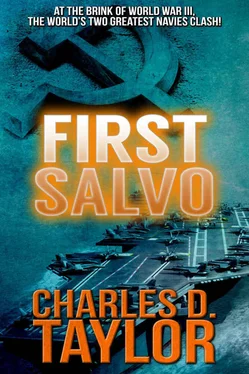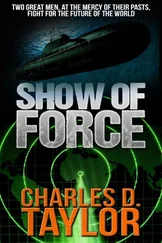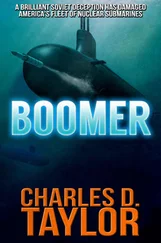Even as the agonizing, terrified screams echoed back to him, the man calmly finished lighting his cigarette. Then he arose, acting as startled and horrified as anyone around him.
As confusion mounted into chaos, he chose the appropriate moment to slip away. It would be many hours before he was delivered back to the coast of the Black Sea, north of the entrance to the Bosporus. Then he could sleep. But he knew he wouldn’t sleep well until he returned to Simferopol and read the papers.
At the same moment, and at selected times throughout that same day, other terrorists from his guild would also slip away unnoticed. But some of them would be captured. They would be relieved to learn that the cyanide capsules would work quickly. But they would never know they had been set up by their own people, or that they would be identified as Greeks. They were not aware that the objective was war between Turkey and Greece.
* * *
As expected, war was declared within hours. The Turkish air force directed heavy bombing strikes over major Greek cities, with the emphasis on Athens. Satellite photos confirmed heavily damaged port facilities. Greek retaliation was as severe. The unexpected result on both sides was heavier damage to civilian centers rather than the well-defended military bases. At this there was an almost audible sigh of relief from the Pentagon, for they were expecting to need Greek and Turkish forces in the coming days. On that same day, Turkey announced that the Turkish straits, the Bosporus and the Dardanelles, were closed to all shipping until further notice. As it turned out, this was still not soon enough to halt the passage of a number of capital ships from the Russian Black Sea Fleet.
Due to continuing exercises by Russian divisions in Poland, East Germany, and Czechoslovakia, NATO forces were placed on Condition Two alert. Satellite photos showed reserve divisions mobilizing in the western sectors of the Soviet Union. Photo reconnaissance also pinpointed supply trains moving at an alarming rate toward the west in all Warsaw Pact countries. The CIA confirmed military contents.
Also that day, the Norwegian government requested U.S. satellite recon of its Svalbard territory, situated more than seven hundred miles north of the Arctic Circle in the Barents Sea. This was a relief to U.S. intelligence specialists, who had already recorded unusual happenings in the area. Communications with Norway’s settlements on Spitzbergen Island had been dead for the past twelve hours. Indications were that heavy message traffic intercepted between Murmansk and Svalbard coincided with Soviet attack submarine activity in that vicinity.
ONE HUNDRED MILES EAST OF CHARLESTON, SOUTH CAROLINA
“American fighters approaching, Commander…. Range about three hundred miles, speed seven fifty.”
“Their radar locked on us?” The pilot of the Russian long-range bomber was extremely cautious. Though he had reviewed this in his mind time and again, he was worried that something would happen, something that might ruin his mission.
“Yes, sir.” The electronics officer paused for a moment, then added, “Not close enough to pick up a small object in the air…. A few more minutes, sir.”
These huge, modern Soviet bombers often flew missions along the Atlantic Coast, always discreetly beyond U.S. airspace, but also always close enough to require an escort from American fighters. It was a game both for the Russian pilot and his American counterparts. The Bear-D bomber would maintain its altitude and speed and the course would be a carbon copy of all previous flights. The Americans would take station off either wing of the bomber, close enough to see the flight crew, yet distant enough to avoid any danger of a malfunction. They might stay together for an hour, sometimes less if the Navy or Air Force wanted to exercise other pilots and give them a chance to see what the enemy looked like. The pilots would waggle their wings and wave to each other. It was a game.
“Commander, they’re within range now.”
The Russian pilot gave his orders, anxious to release their surprise.
“Another thirty seconds, sir. We’re not quite in position,” the careful, assured voice of the navigator came back.
“You’re sure?” Perhaps something would go wrong now, something to injure the mission.
“Fifteen seconds…”
“Fine,” responded the electronics officer. “No doubt about it. They’ll get a good echo on their radar, but they won’t have the slightest idea what we’re sending down to the water.”
After a long pause, just as the pilot was going to question him again, the navigator remarked quietly, “Release.” His final computer check indicated all systems would function normally.
The pilot exhaled with a long sigh, one that was easily heard over the interior communications systems. Both the electronics officer in his cubbyhole and the navigator in his shook their heads. How the hell would this pilot handle combat? they wondered to themselves.
The American fighter planes did pick up the object on their radars. They could not tell what it was, or why it was there, but their on-board computers told them instantly that it wasn’t a missile — they were in no danger. As they closed in on the giant bomber, taking position on either wing tip, the senior American pilot reported the strange occurrence to his base. On board the Russian bomber, the electronics officer recorded that conversation with Norfolk. When they arrived in Havana, it would prove they had done their part of the job. Now the electronics officer thought to himself, Let’s see if the technicians back home did their part. He carefully selected the correct U.S. Navy frequency, then waited patiently.
Half an hour later, at a small, obscure naval station on the Maryland coast, a chief sonar technician called his superior in Washington. “Sir, Bermuda station reports that SOSUS hydrophone arrays at…” and he gave the locations between the Bermuda station and the Georgia coast, “are inoperative.” The sonar technician went on to explain that the sonar technicians on Bermuda picked up an unidentified noise in the water, one their computers could not identify, just before the hydrophones went dead.
SOSUS is a system of listening points on the bottom of the ocean that can detect and classify literally every noise in the water. It is especially accurate in picking up and identifying movements of Soviet submarines, whether they are exiting a choke point from their own bases into open ocean or taking station off the U.S. coast. SOSUS is a critical line of defense, especially in detecting the possibility of a subsurface missile attack on the U.S. mainland.
A brisk wind raised a four- to five-foot chop. Green water splashed over the bows of two ships, the spray splashing the sailors working on their decks. The Russian guided-missile destroyer had been tailing its American counterpart most of the day. The captain of the American ship, Benjamin Stoddert , also a guided-missile destroyer, wondered when the Russian would alter course and leave them alone. Since the Russian craft had been identified that morning, he’d very carefully selected his bridge watch, and now they were very tired.
On the Soviet ship, Bodry , her captain decided it was time. He rang up full speed, then called his engine room to insure that his chief engineer had personally assumed the watch. “We’re moving in now. I want your senior men at the controls.”
The chief engineer acknowledged the orders with a growl. He’d been called down to the engineering spaces to assume the watch three times now. The captain had changed his mind each time. Before they departed Vladivostok, they had gone over the operation with the type commander. Then the squadron commander had done the same thing. Once they were at sea, the political officer met with each department, not only for one more review but to place the operation in a larger, more glorious perspective. The chief didn’t need any more of that bullshit.
Читать дальше












